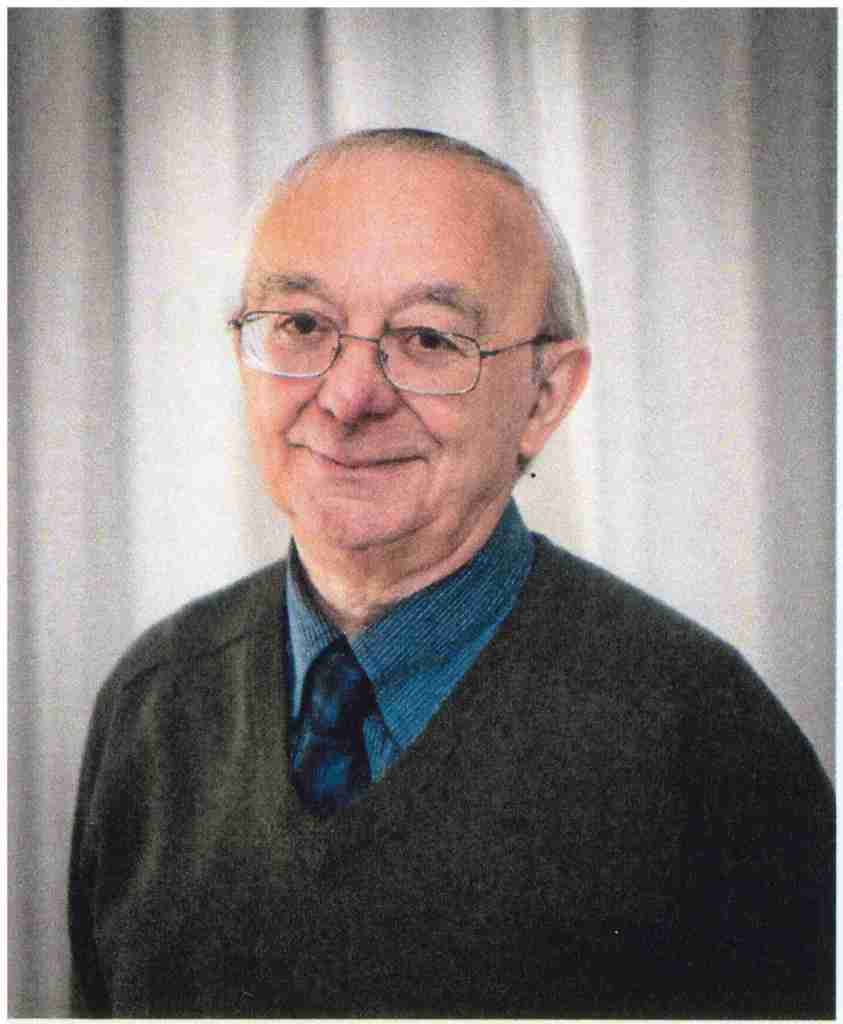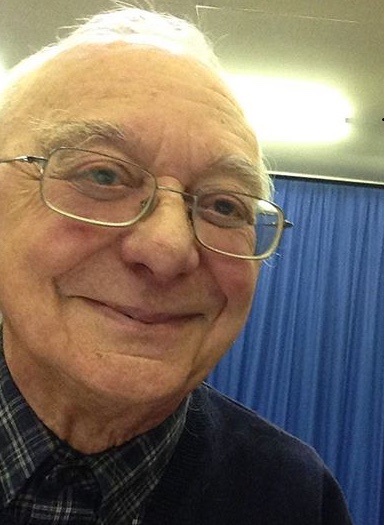Composer, pianist and educator William (Bill) Kinghorn died on 28 April 2021 at the age of 86.
Bill was Senior Lecturer in Harmony and Composition at Leeds College of Music from the early 1970’s until his retirement in 1995. At that time Leeds was one of the few colleges in the UK which offered a qualification in jazz, and Bill was an important figure in the education of a generation of UK jazz musicians. As well as being a respected classical composer Bill also had a deep knowledge of jazz, in particular the piano style of Bill Evans. He was also an inspirational teacher who believed in allowing students to make their own discoveries, and opposed narrow, prescriptive models of education. Former student and pianist Nick Tomalin shares his own memories and reflections on Bill, whilst also drawing on the memories and experiences of other former students and colleagues (*).

I still vividly recall my first Bill Kinghorn lecture. I had enrolled at Leeds College of Music in 1990 aged nineteen, at the urging of my piano teacher, having recently bailed out of a journalism course, and with no real idea of what to do with my life besides a growing interest in jazz. Bill, dressed in his customary suit and bow tie began his Functional Harmony course by drawing a large Middle C on the blackboard and encouraging us to think of this not as a musical note but as a planet, complete with rings. He then proceeded to construct a complex analogy drawing parallels between the force of gravity in the universe and the musical forces at work in the tonal system.
I don’t remember every detail of the lecture, but I do remember walking out feeling that my mind had been expanded in some mysterious way, and that the world in general (and music in particular) was more complex and extraordinary than I had ever imagined. Having spoken to other ex-students of Bill in researching this article I now realise that this experience was far from unique!
Bill was born in Newcastle-upon Tyne in 1935. His interest in music began relatively late when aged eleven he bought himself a small plastic flute and taught himself to play. Impressed by this, the music master at his school gave him a recorder on which he became a virtuoso performer and as a young teenager he took part in a performance of Bach’s St Matthew Passion given by the Newcastle Bach Choir. This was his first experience of the music of Bach, an experience he would never forget, and which prompted him take piano lessons.
In 1953 he began a teacher training course at St John’s College in York, where he became involved with the musical activities there, writing music for a production of King Lear and founding a recorder consort. In this year Bill even had an impromptu encounter with Benjamin Britten when the composer came up and complimented him on some music he had written for a performance at the York Festival.
He returned to Newcastle to take up a teaching post, and then in the mid-sixties moved to Yorkshire. In 1967 he became Head of Music at Foxwood School in Leeds where he first met lifelong friend and colleague Graham Hearn who remembers this time: “Bill was seriously into the work and philosophy of John Cage which chimed with my burgeoning sympathies with experimental music and together we began to apply Cage’s ideas in our teaching…” Soon after he joined the faculty of Leeds Music College as Lecturer in Harmony and Composition.
Bill was a prolific classical composer, and his catalogue of works includes three symphonies, a piano concerto, a violin concerto, two string quartets, two piano sonatas and various choral works. However, he also performed to a high level as a jazz pianist (though infrequently) and had a particular love of, and profound insight into the work of Bill Evans. The pianist Dave Milligan studied piano with Bill for two years and remembers working on a Chopin prelude with him: “Bill had an incredible way of analysing music and demonstrated these amazing connections between the Chopin and a transcription he had done of one of Evan’s recordings. It was like a mine of harmony, texture and tone control…”
A rare jazz performance by Bill was always a cause for excitement in the college, and I remember attending one in a packed recital room in the old Civic Theatre building. Bill was accompanied by Ronnie Bottomley on drums and Dick Hawdon on bass, and it was thrilling to hear how he translated his profound harmonic understanding and assimilation of Evan’s style into his own unique approach to jazz piano.

Bill was a truly inspirational teacher. He earned the affectionate nickname of ‘Yoda’ from many of his students, and there was something of the wise old master with an impish sense of humour to his persona. His teaching philosophy was unapologetically progressive, and he always encouraged students to think for themselves and to challenge received wisdom and dogma. Dave Milligan recalls: “He rarely ‘showed’ you how to do something. He would challenge you to figure it out; teaching you to teach yourself”. Saxophonist Tori Freestone makes a similar point: “He never spoon-fed but instead gave us concepts so that we could discover the beauty of the creative process ourselves.”
This could be quite challenging for students who merely wanted to be told ‘what to do’ and many found his teaching too abstract or esoteric. Bill was no dry academic though, his lectures were always full of jokes and fun, and he was also aware of the pitfalls of over-analysis and mistaking representation for reality. In fact, I remember he used to jokingly suggest that the root of the word ‘analysis’ might in fact be ‘anal’.
Many former students attest to Bill’s ability to communicate profound truths about music in an engaging way. Guitarist Jonathan Preiss says: “…what he was really teaching us was a deep appreciation of what gives music some of its intense beauty and meaning.”
Bill would sometimes rail against what he referred to as the ‘hot licks’ school of improvising, whereby a student would buy a book of jazz licks and string them together with no understanding of the melodic or harmonic context of the original phrases. Pianist Matthew Bourne another former student of Bill’s speaks of this aspect of his teaching “…there were no quick fixes, magic incantations or universal licks to help you progress. These ideas were anathema to him. Instead, Bill’s approach was concerned with uncovering the principles by which something worked, applying one’s own language to that, and then finding one’s own voice as a result of the hard work.”
Some of Bill’s classical pieces were performed during his lifetime (I remember attending a performance of his Concerto for Orchestra at Leeds Town Hall), but he remains largely unrecognised for his huge contribution to music and music education, perhaps because as Matthew Bourne puts it: “He was just so damn modest!” His influence as a teacher will live on, however, in the many musicians he inspired, and who through their own teaching practices have gone on to introduce Bill’s ideas to new generations of students. In my own teaching I often find myself quoting Bill or introducing an idea or concept that I later realise can be traced back to him..
Guitarist Jez Franks who was a student of Bill’s and eventually became a colleague, perhaps puts it best when he says that after an encounter with Bill “…you felt ever so slightly elated, ever so slightly augmented as a person, aware of an underlying fizz of inspiration and creativity and the desire to pass that feeling on to others”.
William Kinghorn F Leeds CM, FTCL, LTCL, ARCM. Born in Newcastle-upon-Tyne UK, 1935. Died Harrogate 28 April 2021
LINK: (*)The Bill Kinghorn Memorial Page, set up by Nick Tomalin, is on Facebook – (for complete texts of the tributes quoted from here. )
Categories: Tributes










Privileged to have known Bill as a former student at CLCM (now Leeds Conservatoire). His musings and insights into Bill Evans and fundamental harmony have stuck with me, we’ll over 30 years on. RIP Bill.